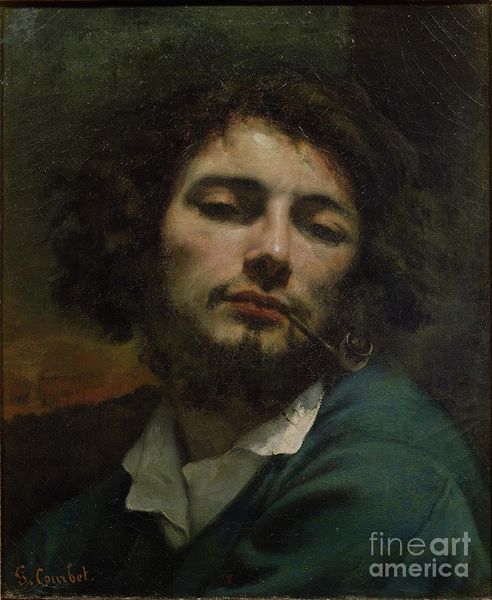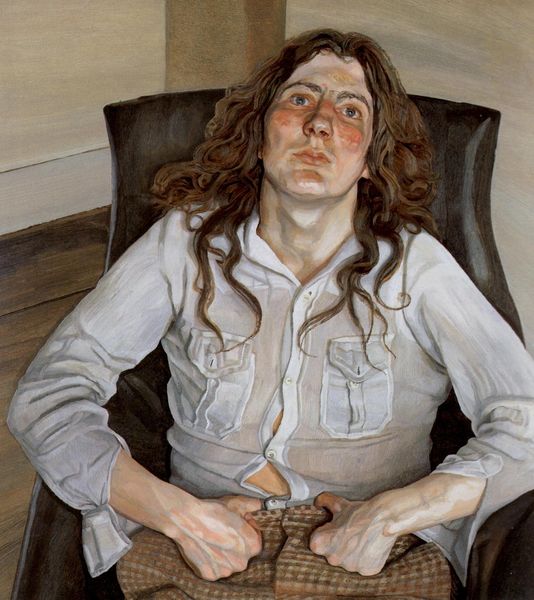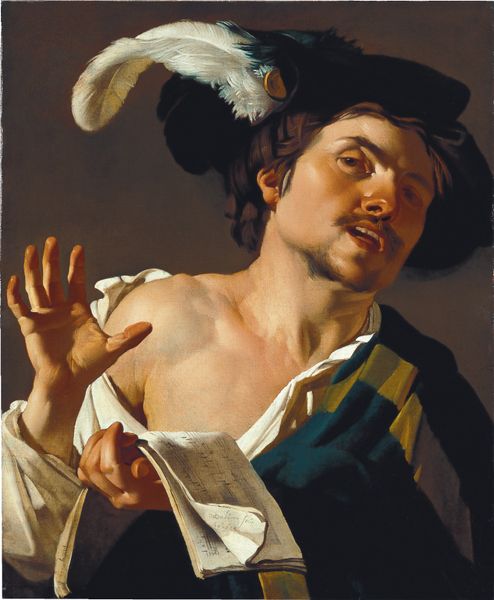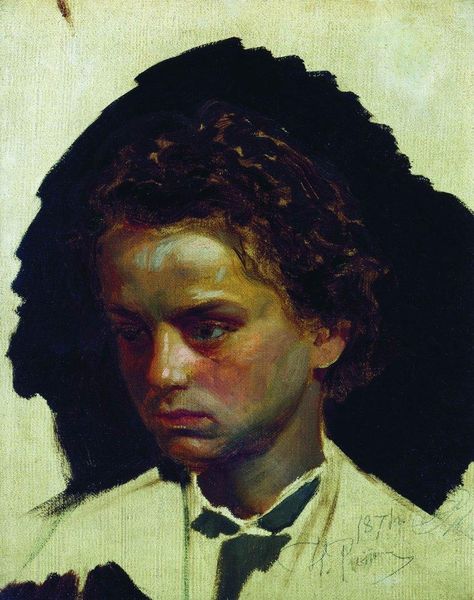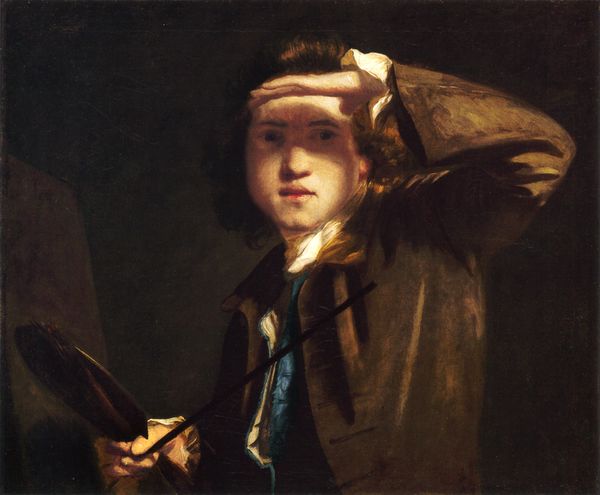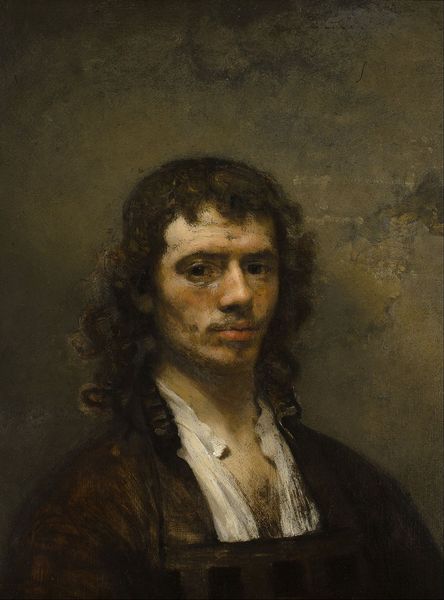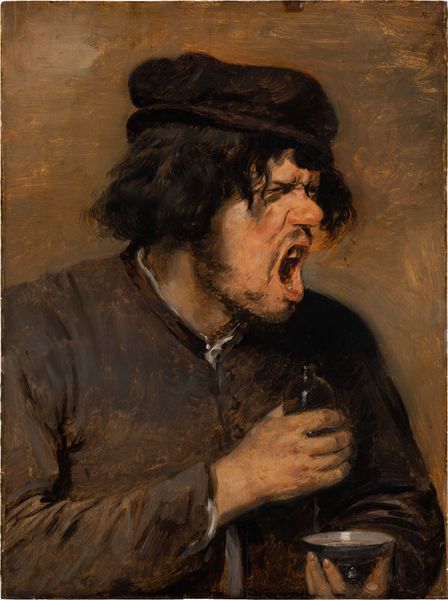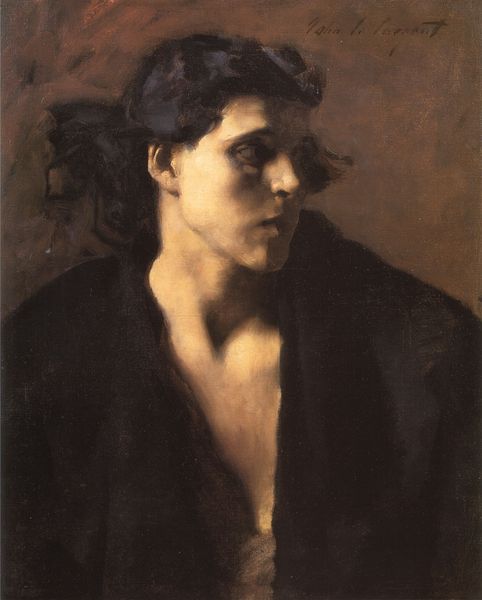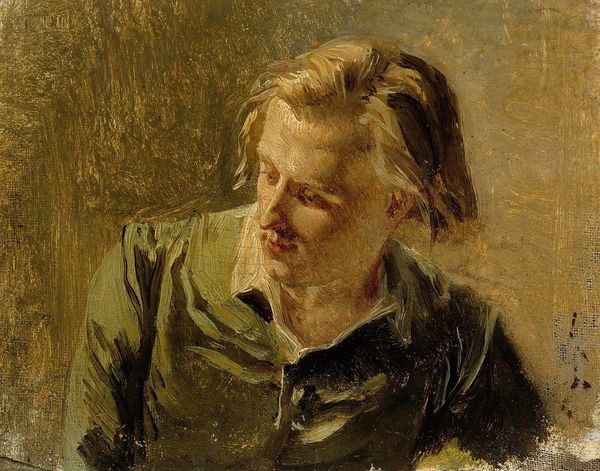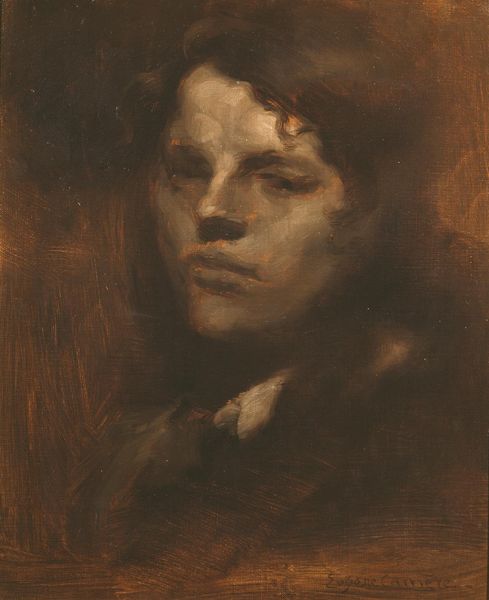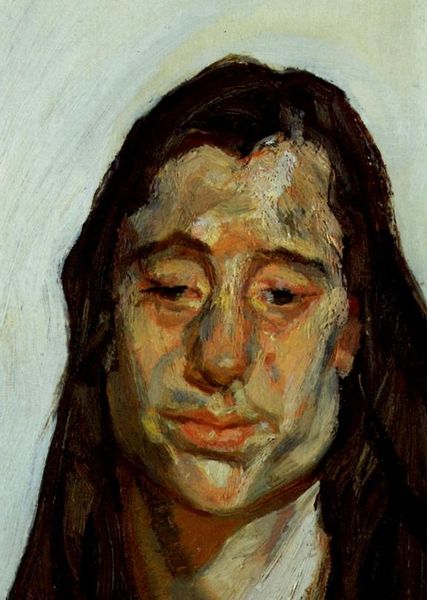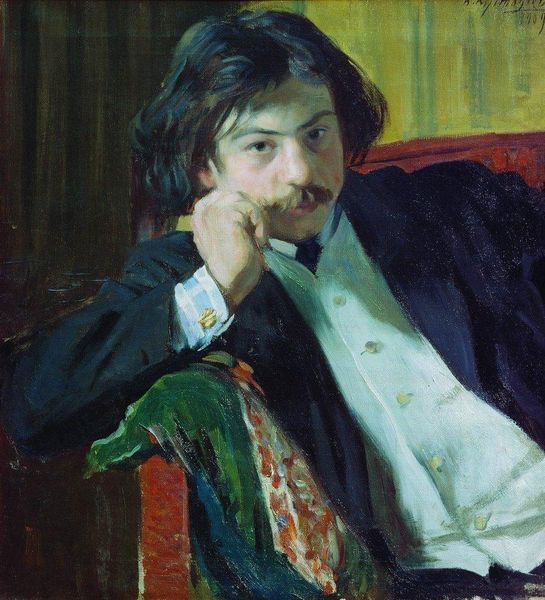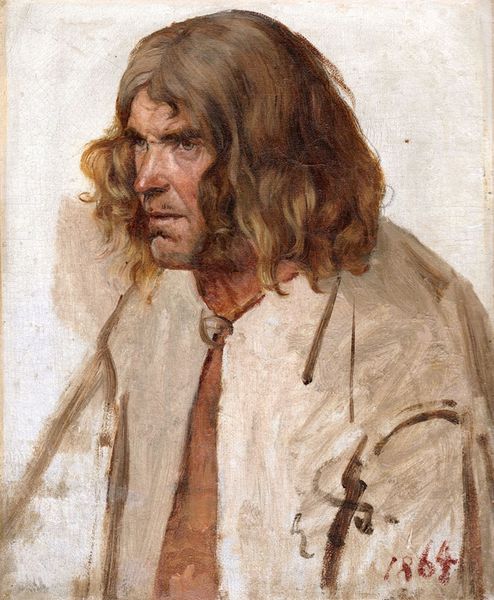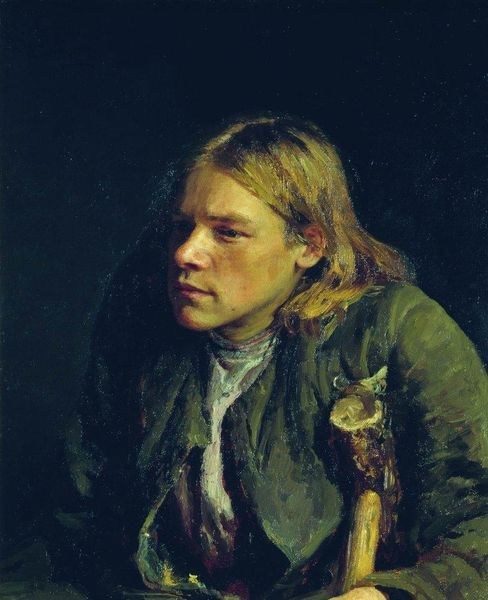
painting, oil-paint
#
portrait
#
self-portrait
#
painting
#
oil-paint
#
romanticism
#
genre-painting
#
history-painting
#
realism
Dimensions: 45 x 54 cm
Copyright: Public domain
Curator: Look at this self-portrait. Executed in 1845, Gustave Courbet’s oil painting, “The Desperate Man,” currently resides in a private collection. Editor: Well, that’s an apt title. My immediate reaction is that of witnessing sheer existential terror. It’s a primal scream captured on canvas. Curator: Indeed. The symbolism is potent, isn't it? The wild hair, the wide, almost frantic eyes. This raw display can be linked to the Romantic movement’s embrace of intense emotion and the individual's inner turmoil. The hands gripping his head suggest an overwhelming sense of being trapped, maybe a psyche collapsing. Editor: I see it through a more contemporary lens. The gaze forces us to confront our own anxieties and insecurities. It's like looking into a mirror reflecting our collective dread. I also notice the lack of any discernible background detail, no anchors; just pure, unadulterated emotion against a nondescript haze, universalizing this feeling of being cornered. Curator: Good point. The use of light emphasizes this drama. See how it spotlights the face while the rest remains slightly subdued. And yet, it’s interesting that while channeling distress, there's also an element of theatricality here, as though he’s performing despair. Editor: Right, and during this time there's immense upheaval socially in France, after the revolution the bourgeoise found themselves navigating a rapidly changing landscape of social and political identity. So, there are many reasons for the painter and sitter to feel anxiety. Curator: This painting feels very modern. Even now. The fact that we can still interpret its emotional state across two centuries. Perhaps what Courbet was expressing resonates still within the collective unconscious. Editor: Absolutely. I think it challenges viewers, then and now, to think about individual suffering within a society that creates these psychological states. Curator: Ultimately, “The Desperate Man” compels us to explore the depths of the human psyche, inviting dialogue across art history and into contemporary society. Editor: And maybe prompts us to question, in our own lives, what really is at stake when facing our existential boundaries and constraints.
Comments
No comments
Be the first to comment and join the conversation on the ultimate creative platform.
